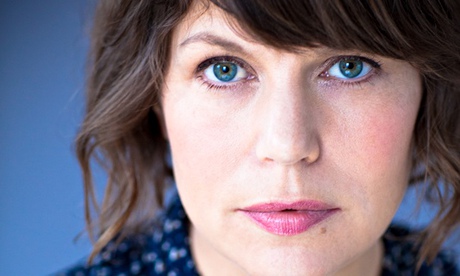
The long summer holiday when everything changes, or tries to, is a rite of passage. Before the reality check of exam results, new school year or serious job-hunting, there's potential for adventure and unfortunate relationship choices. Just when self-reinvention is pressing, the old childhood circumstances are still evident. This all has great fictional potential.
We Were Liars by E Lockhart (Hot Key £7.99) is a haunting psychological thriller about members of a privileged Bostonian dynasty who can trace themselves back to the Mayflower and spend summers on their own island off Massachusetts. The patriarch, Harris Sinclair, doles out favours to his three daughters like a Lear who hasn't got round to the paperwork.
For Cadence, Harris's favoured first grandchild, the summers are blissful, especially when she falls in love. Then her account of Summer Seventeen reveals that she missed the previous clan gathering, has had a breakdown and feels set apart from her familiar gang of cousins.
As Cadence's snapshot memories reveal the racism and power games that fuel the "old-money Democrats", it's only a matter of time until the citadel crumbles. This short, searing story demands to be read at one sitting, and then swiftly reread in the light of its final revelations.
Tom Ellen and Lucy Ivison survived a sixth-form relationship and are still friends 15 years later. They embody optimism for anyone feeling that it might as well rain until September, and have pooled their perspectives and distinct voices in a supercharged romcom, Lobsters (Chicken House £7.99).
Sam and Hannah recognise each other as their "lobster" (the one and only) at the post-A-levels party but true love has to wait as both authors explore the acute embarrassment and awkwardness of everything associated with the love object. Lobsters is frank, funny and honest about sex, drunken parties and group holidays and also captures another tortured relationship: that of Hannah and her best friend (an insecure, controlling boy magnet).
Why We Took the Car by Wolfgang Herrndorf (Andersen Press £6.99) represents another summer staple, the buddy road trip. The short justification for Tschick and Mike's hotwiring a Lada in a suburb of former East Berlin is that being, respectively, a Russian and a bit dull, they were not invited to the cool end-of-year party. Their voyage into Wallachia (which translates as "back of beyond") is terrifying, exhilarating and hilarious. But when the escapade is over, the social gulf between the buddies is reinforced.
Why We Took the Car has definite potential for cult status, as does Dead Ends by Erin Lange, now in paperback (Faber £6.99): another account of unlikely allies that delivers depth with pace.
To save himself from expulsion owing to his anger-management issues, tough guy Dane agrees to mentor his new neighbour, Billy, who has Down's syndrome. They discover that they are both searching for missing fathers, their mutual dependency and trust grows and their path leads them into increasingly darker predicaments. Meanwhile, their mothers' stories supply a heartbreaking subtext.
The tale is enveloped in iconic Americana, from the boys' school, named after Mark Twain, to Dane's mother's framed lottery tickets and the vintage road atlas packed with clues by Billy's father. And the value system of present-day America itself is one villain of the piece: it is lack of a car, not lack of a father, that makes Dane an outcast. There is much to be angry about in Dead Ends, but also hope as Dane and Billy challenge their own stereotypes.
Salvage by Keren David (Atom £6.99) also considers haves and have-nots, this time in the same family. Cass and Aidan, adopted as children by a wealthy family who chose to keep only one of them, share the narrative. Just as Cass's seemingly stable home life is falling apart, Aidan draws her into their shared roots and the prematurely adult world he has created for himself. But the true effects on both the "chosen" and the "rejected" child take time to emerge, with turbulent results.
The parallel accounts of the siblings' separate and shared lives give the reader much to contemplate: not only questions of nature and nurture and the weight of expectations, but the changing shape of families that we can choose.
In The Country of Ice Cream Star by Sandra Newman (Chatto and Windus £14.99) families are tribes and 15-year-olds are matriarch warriors, because life expectancy in America has been reduced to 18 by a killer virus. The privileged whites left some generations ago, leaving black children to spend their short lives scavenging. Ice Cream Star's quest to find a cure for the virus and encounter with a rare adult male "roo" (Russians are immune) is fuel enough for a rich and engaging novel, but even more compelling storytelling is to come when she is installed as the figurehead of a Virgin Mary cult by the Hispanic rulers of New York. Dystopia is a much-worked territory but The Country of Ice Cream Star is a brave new/old world that delivers on multiple levels, especially through Ice Cream Star's alluring language.

